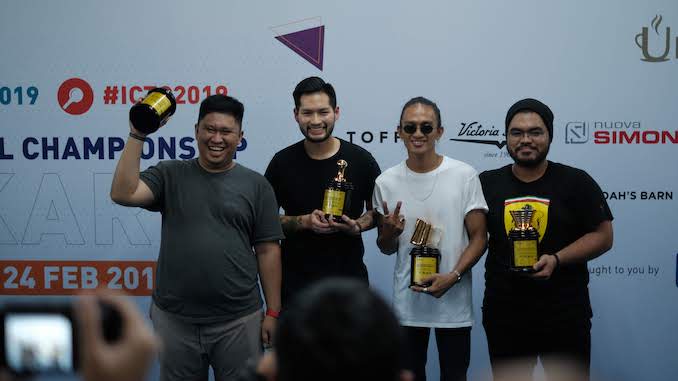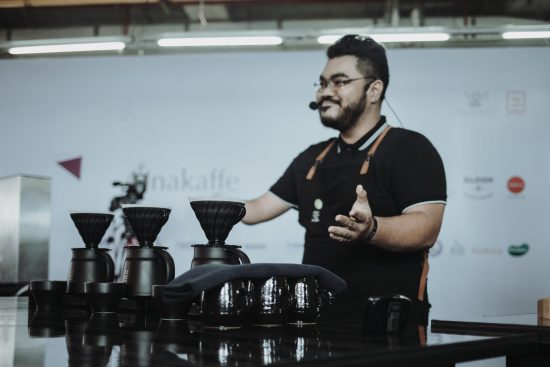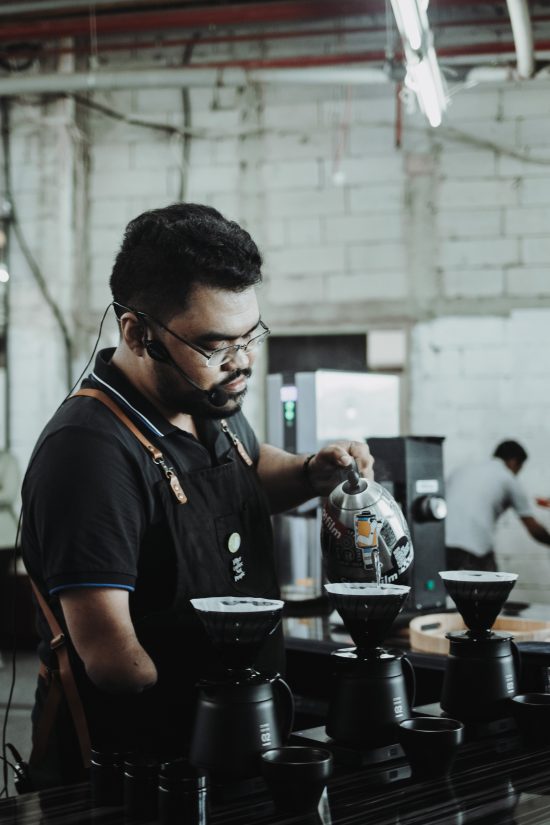
We close our interview with the 2019 Indonesian Brewers Cup champ discussing his dreams for the future and more.
BY TANYA NANETTI
SPECIAL TO BARISTA MAGAZINE ONLINE
Photos courtesy of Fakhri Muhammad
From the editor: Professional psychologist Fakhri Muhammad was into home brewing as a consumer before it became a pandemic interest for everyone else—so much so that it landed him first place in the Indonesian Brewers Cup in 2019. We close our interview by talking about Fakhri’s goals for opening a café and his thoughts on the current coffee-growing community in Indonesia.

Tanya Nanetti: As we already said, your profession of psychologist is completely different from being a barista. What is your job? What did you study and what do you do for a living?
Fakhri Muhammad: During my master’s degree, I worked as a freelance assistant to a friend of mine who was already working as a psychologist. My bachelor’s degree is in psychology and my master’s degree is in criminology. Right now my job is to be an assessor for the clients of a psychology firm.
But, for the time being, I’m also doing a lot of coffee-related work: I’m holding manual-brew workshops, I’m taking over bars in several coffee shops, and I’m often judging for local competitions.
So what’s going to happen in your future? You’ll be a full time psychologist? Or maybe you’ve got plans to “properly” work as a barista, or to even own your own coffee shop?
For sure one day I’ll have my own coffee shop.
I can already imagine a place built on a concept similar to the one featured in the Midnight Diner series on Netflix, because basically I am the kind of person who likes to chat with as many people as possible, and that’s how I imagine my future coffee shop.
I want it to be a place where customers who need a friend to converse will feel at home. They’ll be free to share their own stories, talking about their love, their lives, or maybe their dreams and aspirations. Why do I want to have a place like this? Because I’m a psychologist, and maybe a good listener.
But I will make all of that happen, if I make it into the top six at World Brewers Cup.
You’re from Samarinda City, East Borneo, Indonesia. How is the specialty-coffee scene around there? Are there many roasters and coffee shops? Is the specialty-coffee scene already widespread, or is it still mostly a thing for tourists and expats?
Specialty coffee is already widespread in Samarinda. There are many coffee shops and roasters here although, if you look at the quality they produce, they are still very far from Jakarta. I can say that Samarinda is still a follower from Jakarta. For example, in Jakarta now there are many coffee shops that have a coffee mocktail menu; maybe in Samarinda it will happen around December or January next year.

And what about coffee farms? In recent years we saw a growing production of Indonesian specialty coffee. We can say that, in a way, Indonesia is becoming one of the new cool realities. Can you tell us more about it?
As is happening in many other countries, lately multiple coffee processors started to process their coffee in different ways, mostly using post-harvest anaerobic fermentation. It’s a real trend (helped also by several Indonesian champion baristas, who went to the farms to help provide understanding or knowledge to carry out this process) and this has led those coffees having had a fairly rapid increase in taste and body.
Even some areas that usually have certain weaknesses in terms of origin characteristics are now being helped by this post-harvest fermentation. For example, coffee originating from West Java with good acidity characteristics but a typical lack of a good body after the anaerobic fermentation results in enhanced sweetness and body.
This processing trend obviously has both pros and cons: For many, this method of fermentation can improve the quality of Indonesian coffee so much that pretty soon it will be equivalent to the quality of coffees from Africa or South America.
But there are also those who think that this trend is, in a way, damaging Indonesian coffee, causing its taste to become saturated: Indeed, this fermentation helps develop the same taste characteristics even in coffees coming from different regions, even very far from each other.
Apart from all of that, I’m pretty sure that Indonesian coffees are now in a new era, which maybe will help them (in the next few years) to be widely present in world competitions.
ABOUT THE AUTHOR
Tanya Nanetti (she/her) is a specialty-coffee barista, a traveler, and a dreamer. When she’s not behind the coffee machine (or visiting some hidden corner of the world), she’s busy writing for Coffee Insurrection, a website about specialty coffee that she’s creating along with her boyfriend.

